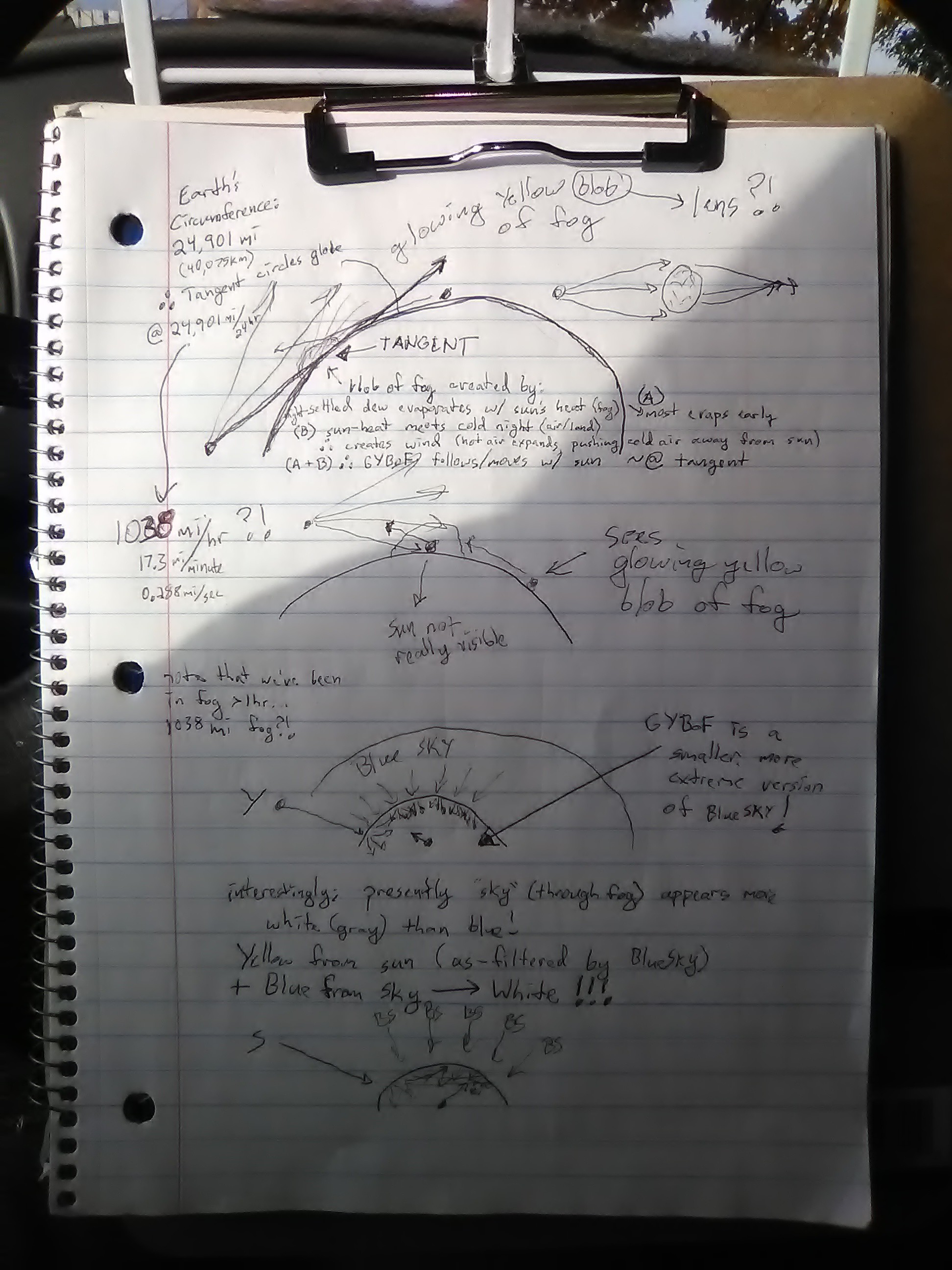weird thought:
A) wind is caused by hot-air meeting cool air. Presumably, the less-dense hot air pushes the denser cooler air.
B) the sun reaches the surface of the earth each morning, at a rate of 1038mi/hr
C) the night-air is cooler than that which is heated by the sun
Then: there should be a constant east-west wind following the sun's reaching the planet's surface, at 1038mph!
Flat Earthers Unite!

(Arising from thoughts on why pre-sunrise the sky was clear, but during sunrise we were engulfed in fog)
 Eric Hertz
Eric Hertz
Discussions
Become a Hackaday.io Member
Create an account to leave a comment. Already have an account? Log In.
*cough* obviously you weren't in Dallas on Sunday.... hehe
Are you sure? yes | no
obviously I missed something!
Are you sure? yes | no
"9 total tornadoes confirmed as power restored to thousands across Dallas-Fort Worth"
https://www.dallasnews.com/news/weather/2019/10/22/4th-tornado-confirmed-as-power-gets-restored-to-thousands-across-dallas-fort-worth/
Are you sure? yes | no
yikes!
Are you sure? yes | no
I don't know what you mean by sun reaches the earth at 1038mi/hr but one of the tenets of relativity is that the speed of light is constant for all observers; you cannot speed up or slow down light.
Secondly the earth has an atmosphere which is far from a simple layer of gas as you've oversimplified it.
Are you sure? yes | no
the earth surface rotates such that [lacking atmosphere] the line between the "light side" and "dark side" travels around the earth's surface at 1038mi/hr. How's that for a mind-bender? If not for the atmosphere's dispersing light around that line, a position on the surface would go from full-dark to nearly full-bright in an instant.
Which may lead one to wonder how a hill's shadow on another taller hillside at sunset doesn't grow almost instantaneously.
Are you sure? yes | no
Which is what happens on bodies without atmosphere like the moon.
Also if you've been in the tropics you would notice sunrise and sunset being more marked and shorter than at higher latitudes due to sunlight being closer to vertical.
Are you sure? yes | no
Good call.
And, yes, it was an oversimplification. Though at speeds like that, it must be a very complex atmosphere, indeed, to not have seriously dramatic consequences following the movement of that line.
Are you sure? yes | no
Remember that heating of the air is due to proximity to land and water. These have quite a bit of thermal inertiia, so that line doesn't have an instant effect. Or course temperature will drop in the course of an evening.
Air speeds in parts of the atmosphere can reach very high speeds. And of course it isn't uniform, it thins out further out.
Are you sure? yes | no